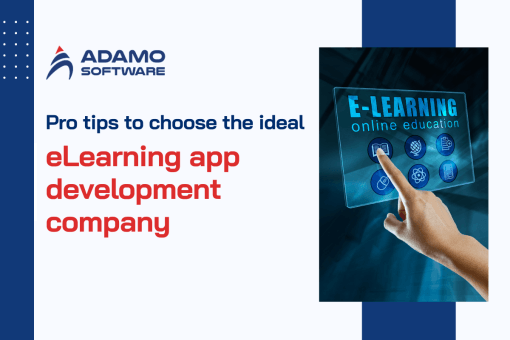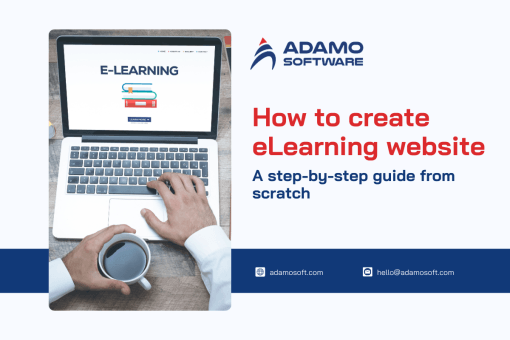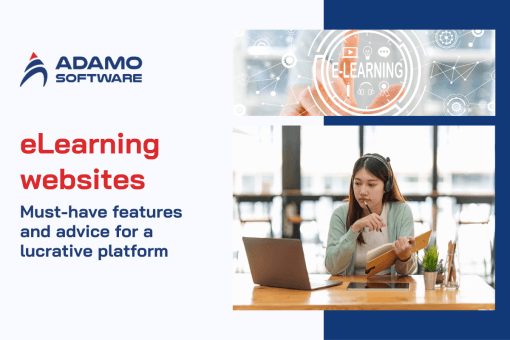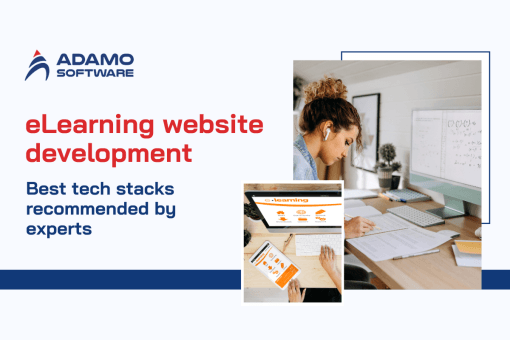Discover the power of e-learning: Benefits of e-learning platforms
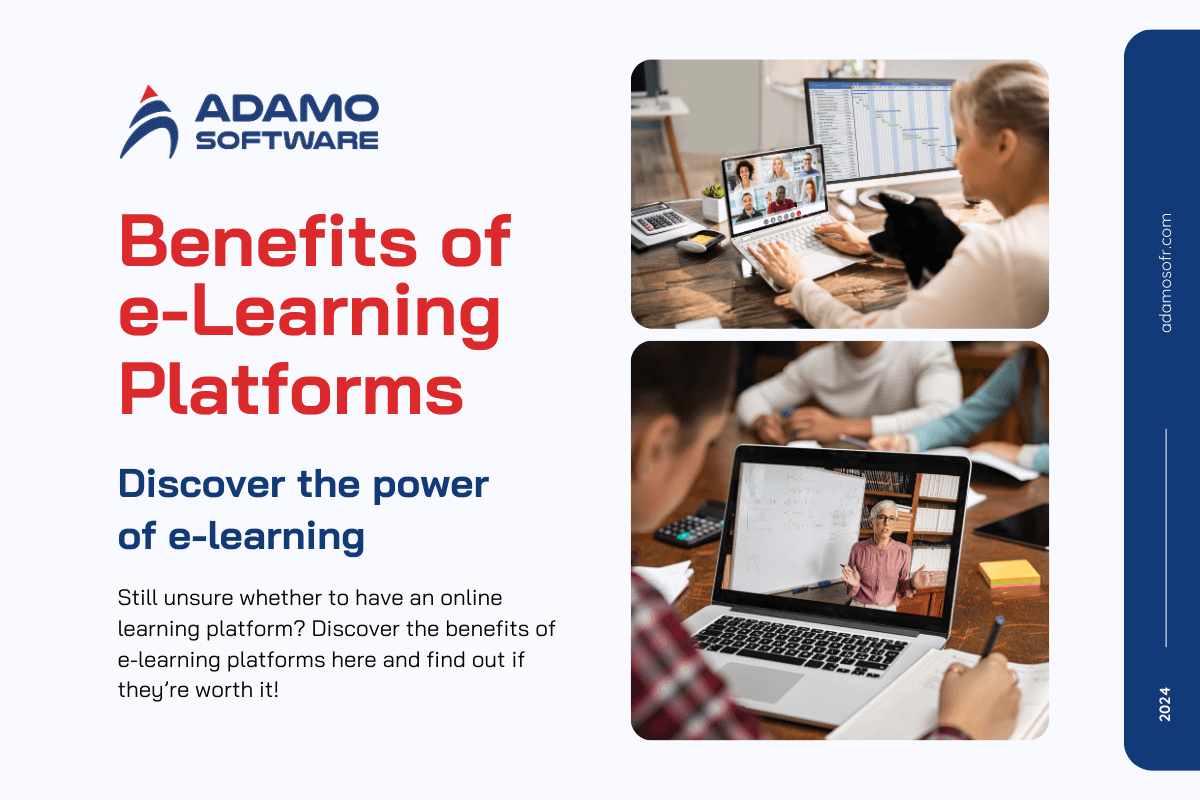
E-learning platforms have become a part of our lives and have changed how we get education and training. The many benefits of e-learning platforms have made quality education much more accessible for people worldwide. These are among the most flexible learning tools since learners can study independently. Understanding the benefits of e-learning platforms and options is crucial as online learning continues to grow.
This article explores the various types of e-learning platforms available and the benefits of e-learning platforms. We will also discuss how to select the best platform for your business. Whether you’re an educator, a student, or a company, harnessing the power of e-learning will transform your learning experience.
I. What is an e-learning platform?
An e-learning platform is a learning environment enhanced by information and communication technologies. It offers several features allowing users to engage, share information, and work together through the Internet. These features can include discussion forums, live chats, video conferencing, quizzes, and other learning resources that support engagement. Online tests and quizzes also form a part of e-learning, which is quite essential.
Furthermore, the benefits of e-learning platforms are vast. They offer a flexible way to deliver online courses, training programs, virtual workshops, and webinars. They make distance education more flexible and individualized, putting learners in the driver’s seat of their learning journey. In an e-learning platform, learners can access content anywhere anytime, giving them the power to shape their learning experience. This is one of the key benefits of e-learning platforms, enabling individuals to learn without the traditional classroom’s constraints.
II. What are different types of online learning platforms?

1. Video-based learning
The application of video in online training is rising because of its efficiency. Video-based learning has gained popularity due to its effectiveness in using resources and ensuring continuity. Numerous studies demonstrate that the human brain processes images and videos much faster than text. Therefore, companies are urged to embrace this strategy. There are multiple benefits of e-learning platforms such as Udemy and MasterClass that provide content in videos. These platforms offer courses teachers develop in pre-recorded video, PowerPoint, and text-based activities. The incorporation of video lessons is an effective way of improving the learning process. It involves using videos to illustrate concepts and enable the learners to discover and grasp materials independently.
2. Online group learning
Although most people like one-on-one learning, collaborative learning also has many benefits. Learning in groups is more effective in solving complicated mathematical problems or working on assignments on topics like ‘Ancient Egypt.’ Online group learning platforms like Varsity Tutors and TakeLessons help learners find tutors and share tuition costs. These platforms facilitate learners’ and instructors’ interactions and provide a setting similar to a classroom. The benefits of e-learning platforms in this respect are apparent. Such platforms allow for a meaningful group learning process during which all the participants feel included.
3. One-on-one online learning
This e-learning model is suitable for learners who wish to have a personalized learning approach on their own time. Online one-to-one learning enhances the development of individual lesson plans for language acquisition, school subjects, or exam purposes. Sites like Verbling and Lessonface are excellent examples of individual courses designed for such students. Verbling offers real-time, one-to-one video calls with language tutors, while Lessonface brings music teachers and learners together. The benefits of e-learning platforms in this format are flexibility and aiding in achieving certain learning objectives.
4. Proposal/bidding-based online learning
This type of e-learning allows students to be linked to tutors who can respond to their queries. Students submit their academic questions, and tutors can tender or bid for them. After rating the prices, reviews, and tutor’s profiles, a student can choose a tutor. It is only paid after the student is delighted with the solution given. Studypool and SolutionInn provide services of this type. These platforms allow video chat interaction, tutors are available anytime, and a joint workspace exists. The benefits of e-learning platforms of this type are that they offer students flexibility and customization of the learning process.
5. eLearning platform for teachers
These platforms provide teachers with resources and information that may help to improve the teaching process. They include both free and paid versions. All of these were designed by teachers who know what works in class and want to help their colleagues. One of them is Teachers Pay Teachers, a platform allowing people to buy and sell teaching resources. The resources provided by this platform are of the pre-kindergarten, kindergarten, elementary, middle, and high school levels. There are numerous benefits of e-learning platforms of this type for teachers, as these give essential tips and help educators.
6. Massive open online courses
Students and working professionals prefer MOOCs because of their availability and cost-effectiveness. They provide numerous courses, which may be accessed free of charge, with an option to purchase a completion certificate. Cognitive Class and Coursera offer entirely online courses and self-paced learning opportunities with no time restrictions. MOOCs are for learners at undergraduate, postgraduate, and graduate levels. The benefits of e-learning platforms in this format include various courses and certificates from the desired universities.
7. Online consulting
The need for consulting services is diverse, and due to technological advancement, consultants can work internationally. Online consultation is appropriate for finance and real estate sectors, dietetics and nutrition, psychology, and astrology. Some examples of such platforms are FlexingIt and QuikConsult. FlexingIt offers access to the best business consultants for organizations, and QuikConsult provides education and career consultations online. The benefits of e-learning platforms for online consulting are accessible from all over the world and customized solutions.
III. E-learning platform benefits

1. Variety of courses
The first of the benefits of e-learning platforms is that they provide more course options than face-to-face classes do. This advantage comes from face-to-face courses relying on school funds and the requirements in a particular field. However, e-learning platforms allow people worldwide to take classes online at an inexpensive price. Thus, if you want a wide range of courses that correspond to your educational requirements, opt for e-learning platforms.
2. Cost-effectiveness
E-learning platforms are usually cheaper because they don’t need to pay for the infrastructure of traditional educational facilities. Consequently, the courses offered on these platforms are more affordable than those in conventional in-person educational institutions. An e-learning platform also eliminates the costs of traveling or moving to school to attend a class. This is one of the most significant benefits of e-learning platforms.
3. Flexibility
Another one of the benefits of e-learning platforms is the flexibility of the programs. Online education means you can study at any time and place as long as you have an Internet connection. For example, if one is more focused at night, the assignments should be done then. It is particularly advantageous for those working or caring for their children during school hours. The fact that people do not have to commute long distances also contributes to the flexibility and benefits of e-learning platforms. E-learning is also suitable for people with many commitments since it can be done at any time of the day.
4. Convenience
Next on the list of benefits of e-learning platforms is convenience, as online courses allow candidates to remain at home. This is especially beneficial to those who reside in rural areas since they could otherwise have to cover long distances in search of face-to-face learning.
5. Accessibility
Accessibility is also one of the essential benefits of e-learning platforms. E-learning platforms are not limited to the financial status of the individuals or where they live. Unlike conventional institutions with fixed enrollment dates, most platforms can be joined at any time of the year. Also, e-learning programs are not as rigid in educational requirements as conventional learning models; thus, they are more open to learners.
6. Consistency in quality
COVID-19 exposed the instability of face-to-face learning, but technological developments guarantee the stability of online learning. This means that as long as one has a stable internet connection, one can get quality online learning.
7. Promotes active and independent listening
Promoting active and independent listening is one of the benefits of e-learning platforms. Web-based learning encourages active and independent listening, enhancing people’s listening skills in everyday life.
8. Rewatchable lectures
One central point in the benefits of e-learning platforms is flexibility in that the video lectures can be viewed anytime. This feature enables one to go through complex materials again to gain a better understanding.
9. Environmentally-friendly
Classrooms that use blackboards and overhead projectors use much paper and electricity daily. However, e-learning platforms are friendly to the environment since all the student’s work is done online and uses less paper.
10. Easily update content
With the advancement of society, information relating to different topics is constantly changing. Here comes another key advantage among the benefits of e-learning platforms. The content of the online courses can be quickly revised online. Thus, you will get only the most relevant and accurate information.
Also read: E-Learning Platform Development: Features, Tech Stack, Cost, and How to build
IV. Tips to choose the right e-learning platforms

1. Cost & services
The first few things to consider when choosing an e-learning platform are price, curriculum design tools, and integration. Make sure that the platform has security measures and can accommodate growth. Evaluate the customer service provided and the platform’s mobile compatibility and flexibility in customizing and integrating with other systems. Also consider the data export features available to you.
By considering these factors, you will be able to develop software that brings various benefits of e-learning platforms.
2. Ease of use
Accessibility of the platform is one of the essential considerations when selecting an e-learning platform. Educators and business owners should evaluate the user experience, platform features, and benefits, including mobile usability and security measures.
Compare the platform’s course libraries with other platforms and assess its support services and prices. One of the criteria is the interface—learners should be able to operate the system without problems. Research online reviews from previous users and request a trial or demo version to understand each platform’s offerings better. Careful considerations of accessibility will ensure you can deliver the most benefits of e-learning platforms to your audience.
3. Scalability
Consider how the platform will handle large amounts of data or a more significant number of accounts as your course expands. You need to not only confirm the host’s ability to scale up but also assess its hosting capacity. When doing so, remember to consider both your current and future needs.
After that, evaluate how quickly and easily administrators and instructors can access user data and consider any restrictions on adding new users or courses. Check further whether the platform offers options to add new users or courses and whether it can handle large amounts of data. Moreover, look for added features and compatibility with other software, but be cautious of any extra costs related to the solution’s scalability.
These considerations will help you guarantee that the platform will be able to meet your growth needs.
4. Compatibility & Usability
Accessibility and compatibility are crucial for delivering the kind of learning experience that is needed. Select an operable platform in various browsers, gadgets, and OS. The platform must be characterized by straightforward navigation and easily understandable menus. Options for customization can improve the learning environment for students. Discuss the effectiveness of the implemented customizations and analytics tools, as these may make or mar your learning program.
5. Features and functionality
When choosing the right e-learning platform, you must look into the software’s capabilities. Firstly, identify those that provide job aids, virtual classrooms, discussion forums, and surveys to foster interaction during the training. Next, evaluate the platform’s flexibility for creating lessons and learning paths in response to user requirements.
Then, review the audio and video of the content and the storage of the files to ensure the content is delivered well. Assess the reporting features to get information about learners’ activity and progress. Also, make sure the platform can quickly expand and integrate with systems such as CRM, ERP, or LMS. Always remember to consider the usability and user satisfaction when using the platform before making a final decision.
V. FAQs
1. Are e-learning platforms mobile-friendly?
Flexibility of access is critical as it is one of the core benefits of e-learning platforms. Learners today own mobile phones, and thus, the platform has to be flexible enough to allow learning on the go. Find out from your learners the importance of mobile access so that you can know how important it is to incorporate it. If more than 30% of your audience prefers mobile learning, your platform should be mobile-friendly and designed for distance learning.
2. What are your learner’s needs?
It is essential to get to know your learners to be able to come up with the proper training needs. The e-learning platform should allow the learners to accomplish their learning objectives, whether to learn a new skill or a business process. It helps adapt the content and course design using eLearning development.
For instance, human resources compliance training for a global organization needs attributes such as a course flow and progress bar. Courses that require direct student-teacher communication, such as language classes, require assistance from the e-learning platform in course development and discussion.
3. Do e-learning platforms offer integrations with features and systems?
Another essential part of the benefits of e-learning platforms is integrating with other applications and some enhancing features for learning. For instance, SSO is one crucial feature that helps users to sign in to various applications on the platform. It is convenient for the users and enhances productivity because the users do not have to create different accounts. Evaluate the platform’s integration capabilities, which can significantly impact the learning experience.
4. Are e-learning platforms reliable and secure?
Security and reliability are very important when dealing with any form of sensitive information. A security breach is disastrous to an organization because it undermines its credibility. Ensure the e-learning platform has firewalls and SSL encryption to secure content and personal information. This helps maintain the learners’ confidence in the learning platform. It is crucial to any business, regardless of its size or the size of a new e-learning business.
5. Will you be overpaying for e-learning platform features you don’t want?
Cost is one of the most important criteria when choosing an e-learning platform. A platform with unnecessary features will only increase the price and make learning more cumbersome. Consider the required features, and only pay for the necessary ones that confuse the learners. An uncluttered platform benefits learning because it does not complicate the process and frustrates the learner.
VI. Adamo provides professional service to optimize the e-learning platform experience
Ready to build your first e-learning platform? Adamo Software will be your ideal partner on this journey!

Adamo is a prominent software development company in Vietnam with a track record of successful software projects. We offer software solutions in many different industries, including the education sector. Our team of IT professionals has practical experience that can help you work on your e-learning platform development effectively. We assure you that you will get a final product with many benefits of e-learning platforms at the most reasonable price possible.
Contact us today to discuss your ideas for an e-learning platform and see how we can help.






